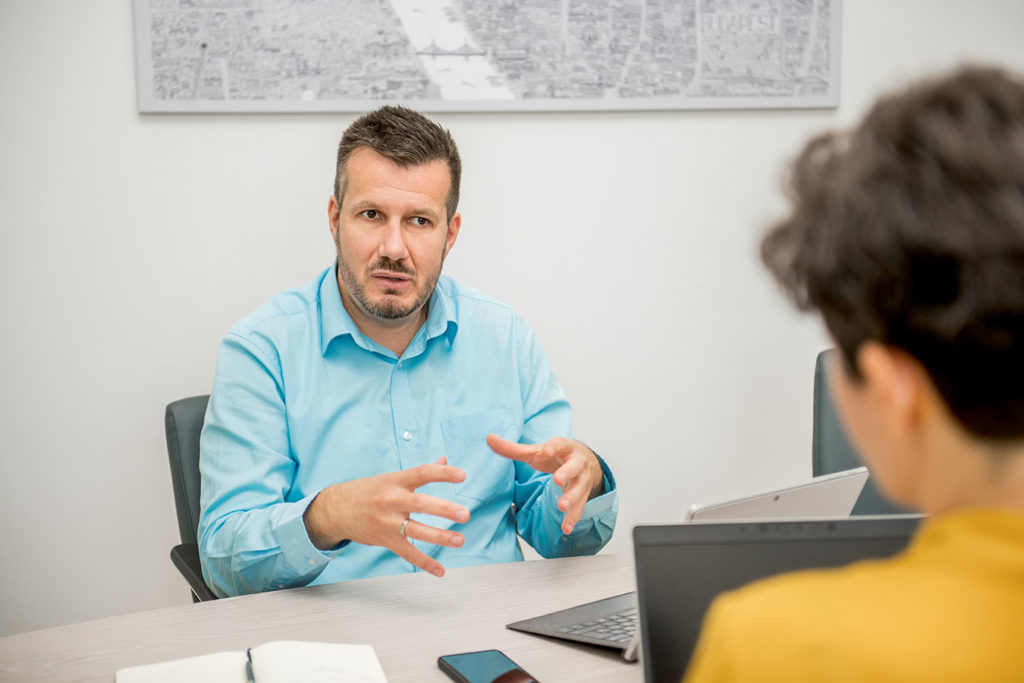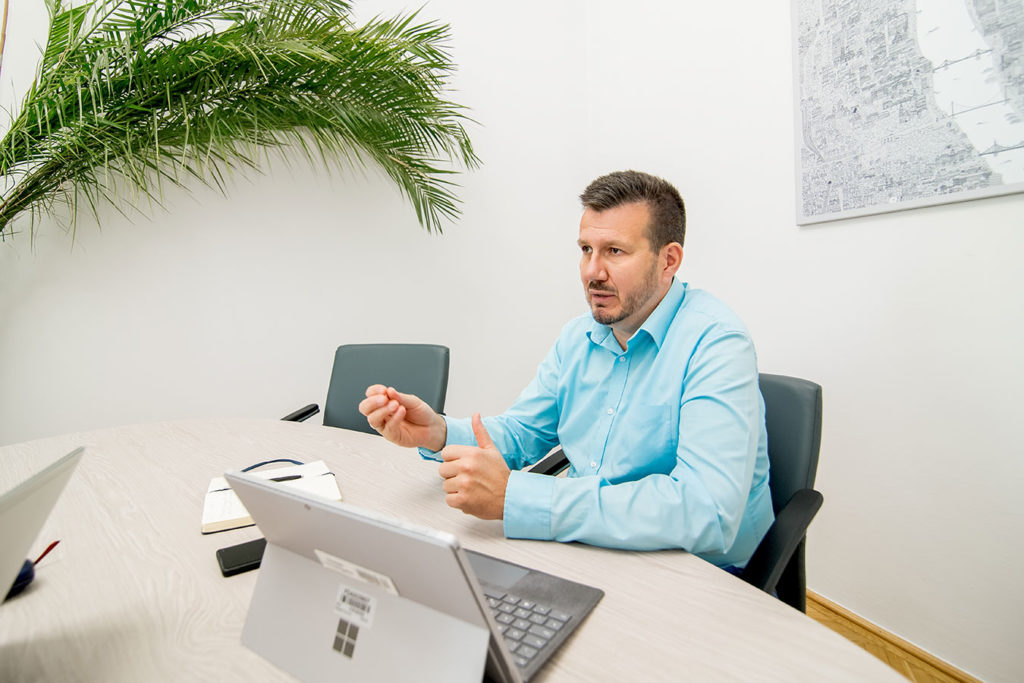Corvinus to make its operation more sustainable through community involvement – Interview with Chancellor Ákos Domahidi

The pandemic has forced the entire higher education to take rapid steps towards digitalisation. Digital solutions later became a good complement to face-to-face teaching, which in a short time has led to a ten-year leap forward in higher education.
The recent crisis, the energy crisis, could now stimulate a similar opening up, according to Ákos Domahadi. “We have been talking about the need for sustainability for a long time, but so far action has been restrained, even at Corvinus. We find it difficult to move out of our comfort zone, but the energy crisis is a constraint and an opportunity,” says the Corvinus Chancellor.
Several sustainability initiatives have been launched recently. These included the plastic-free July campaign in the summer and the Corvinus Green project, in which university staff outlined a wide range of ideas for the sustainability of the university. Four of these areas really stood out: selective waste collection, reducing printing, increasing biodiversity and energy efficiency.
The next phase is all about action, according to Ákos Domahidi. “We’ve talked a lot and done little, but now the energy crisis means we can change that. The next period must be about action”.
Engaging the university community rather than directives
The new measures will be based on voluntary action. “We don’t want to give instructions and directives, we want to rely on personal discretion and involve our colleagues to make the university greener,” says Ákos Domahidi.
In order to get rid of plastic bottles, water filtration points will soon be installed in several locations, where students and staff can drink good quality water. Departments will be able to drop off water bottles on a voluntary basis. The university spends almost six million forints a year on bottled water alone, and the new system is expected to save one million forints a year in addition to reducing the plastic load.
In addition to reducing waste generation, the selective collection system will also be revised. The organisational units will be able to voluntarily drop off office bins and collect the remaining waste separately.
The reduction of unused household equipment will also reduce the university’s energy demand. Currently, Corvinus has more than a humdred refrigerators in operation 24 hours a day, with varying utilisation rates, and this number would be halved. This project alone could save 2.5 percent of the university’s annual energy consumption, which would mean a reduction in expenditure of tens of millions of euros.
The organisational units can choose to give up some of their unused or under-utilised equipment, thus contributing to more economic operation. The aim is to reinforce the sharing model at the university with communal kitchens and communal tools that can foster internal collaboration as well as efficiency and sustainability.
Biodiversity is a much more difficult issue for an inner-city university, where infrastructure constraints severely limit the possibilities. However, the office micro-environment can be improved: the university would like to reciprocate the voluntary commitment of departments with more green office plants, which can contribute to mental well-being as well as purifying the air.

Corvinus has a competitive advantage that cannot be squandered
Corvinus is in a good starting position in terms of the rocketing energy prices, as recently signed long-term energy contracts give it a competitive advantage. However, according to Ákos Domahidi, “we cannot afford to squander this advantage, we have to build our sustainability efforts on it”.
The heating season is expected to start in mid-October, with buildings heated at 20 degrees Celsius to reduce energy consumption while maintaining comfort. When the heating season starts, only the southern gate in Building E will be open to prevent cooler air from flowing through, thus reducing the energy demand for heating the building. The timetable will also be optimised according to the heating possibilities, with Saturday lessons being moved to Building C and the Sóház to keep the main building closed throughout the weekend.
Water consumption is also being given special attention, with new water sprayers installed in the toilets and reduced water pressure. Thanks to the new technology, a significant amount of water can be saved thanks to an almost imperceptible change.
Internal motivation through the community
Sustainability is also a personal goal for the Chancellor. “As a leader, sustainability is also a responsibility, because I am in a position where I can do something about it. I try to take this responsibility seriously, as there are many steps that can be taken to make the university more sustainable. I feel good that the goals set earlier are being translated into action, because I believe that the many small steps will contribute to really putting the world on the path to a more sustainable future”.
Change starts small. “Spiritual-based models build on intrinsic motivation and measure success holistically, based on financial and non-financial factors,” says Domahadi, quoting László Zsolnay’s recently published book “Innovative Models of Economic Spirituality”. The Chancellor also sees this dual approach in relation to sustainability. “The aim is to have an operating model for the university where we build on people’s intrinsic motivations and measure our success in sustainability in both economic and ecological terms.”